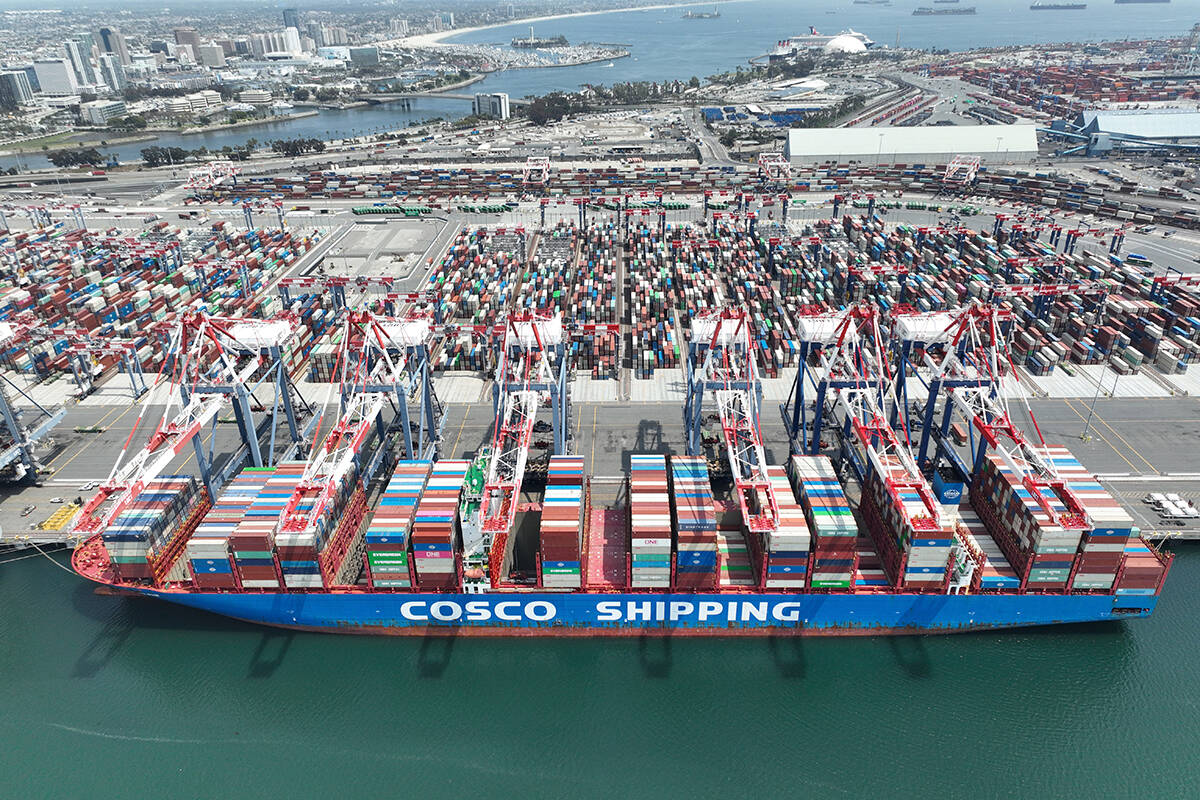Maltsters and pasta makers Processors hesitant to enter into long-term price contracts
Farmers tend to have little sympathy for maltsters and pasta makers, but senior managers from both industries say processing companies don’t have it easy.
Farmers may believe that grain is cheap for beer and pasta makers, but the industry insists it’s a significant make-or-break part of their operating costs.
“It’s our biggest cost, is barley,” Pat Rowan of BARI Canada, which buys malting barley for Anheuser Busch, said in an interview.
“It’s a huge cost for us.”
Pricing durum wrong can devastate a pasta manufacturer’s bottom line, John Griffiths told the recent Grainworld conference in Winnipeg.
Read Also

U.S. softens fees on Chinese shipping
The U.S. starts charging new fees on Chinese ships on Oct. 14. What are the ramifications for their ag exports?
“Manufacturers are vulnerable. You have an industry that has overcapacity and is very, very competitive,” said Griffiths, who spent most of the past 10 years working for a pasta-making company and who now works for American grain company CHS.
Farmers have complained for decades about how little of the price of a bottle of beer comes from the cost of barley, which is the foundation of the drink. Statements such as, “there are only seven cents of barley in a bottle of beer,” have been repeated endlessly at Prairie farm meetings, with the general sense that maltsters can afford to pay more and probably wouldn’t notice a substantial increase in the crop price.
However, Rowan said barley prices have a large impact on the final cost of beer and dominate the variable costs of production.
Labour costs can be managed through layoffs or eliminating shifts if costs need to be managed. However, there is no replacement for barley and maltsters need to buy it regardless of the price, which is a big risk for them.
Rowan told Grainworld that elevator companies don’t like dealing with maltsters and malting barley buyers, even ones as powerful as his, because they don’t like moving small numbers of grain cars to malt plants. The malting industry is also struggling to keep barley growers as other crops are more financially attractive.
He predicted that the industry in Canada would probably soon become like the U.S. industry, which depends on direct production contracts with farmers and closely co-ordinated farmer-maltster production and transportation.
Griffiths said durum processors deal with an extremely volatile market and are afraid to price too far ahead if that means offering a premium price to farmers.
If they pay too much and farmers get a big crop, their competitors can pay far less and do much better financially.
The lack of a liquid futures contract for durum exacerbates the problem.
“There’s been a long, longstanding reluctance for those manufacturers to lock in long-term price contracts without a way to manage their flat price risk relative to long term volatility,” said Griffiths.
Farmers often challenge durum buyers with the example of malt barley buyers, who generally offer fixed price contracts, but Griffiths said pasta is different than beer.
“A strand of spaghetti is nothing more than kernels of durum rearranged in a straight line,” said Griffiths, who guessed that the cost of durum makes up a far larger portion of the cost of pasta than malt barley does of beer.
Durum is 60 to 65 percent of the cost of producing pasta, so any significant change in the cost of the durum has a big impact on profitability.
Farmers might think durum prices don’t matter because the price of a box of pasta never seems to change, but Griffith said that doesn’t reflect the pricing battles that occur between manufacturers and grocery store chains.
“Pasta … is traded as a commodity,” he said.
“Just because … you as a consumer don’t see the price change … year over year doesn’t mean that the price of that pasta isn’t changing.”

















